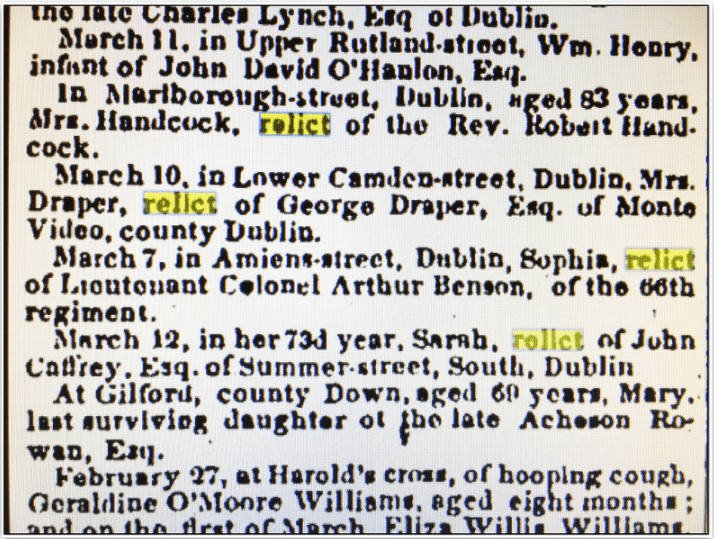Genealogists routinely see the word “relict” in old obituaries. It is not a word that we use in obituaries today.
It simply means “widow.”
Notice how commonly it is used in these brief obituaries published in the Irish American in 1851.

Wait. These people all died in Ireland!
Yes, it was routine for newspaper editors to publish news that informed and captured the attention of their readers. Give them what they want and they will steadily buy the newspaper.
The New York City newspaper, the Irish American, appealed to Irish immigrants and they were interested in the news about their neighbors living here and back in Ireland.
Whether it was the news of the death of little 8-month-old Geraldine O’Moore Williams, who died of whooping cough on 27 February 1851, or Sarah Caffrey, the 73-year-old “relict” – widow – of John Caffrey who lived on Summer Street in South Dublin and died on 12 March 1851, this newspaper reported it.
For a brief moment this newspaper’s readers were caught up on the happenings back home. Likely they knew these people or had friends who did. Ireland was not such a distant place. I am always amazed at the diverse information that can be found in GenealogyBank’s Historical Newspaper Archives.
Comprehensive Irish civil registration did not begin until 1884, so finding death records before that can be difficult. Having them reported and published in American newspapers is a big help to Irish American family history researchers.
Genealogy Tip: Irish deaths were routinely published in American newspapers.
